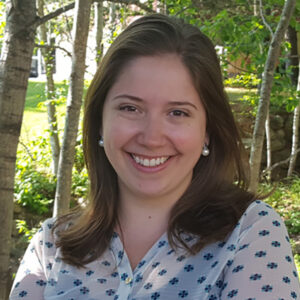Careers
Pursuing a psychology major or minor is more than just completing the required courses. It involves active engagement with your professors, fellow students, and the subject matter. In short, the more you put into your education, the more you will get out of it. And clearly, the earlier you begin this engagement, the more thoroughly you will be prepared for life after Luther.
Psychology Career Information
Psychology Major! What Are You Going to Do With That? Strategies for Maximizing Your Degree
by Derek E. Zeigler-Ohio University, Lindsay M. Orchowski, PhD-Brown University (RI)
Eye on Psi Chi: Volume 14: Spring 2010
Undergraduate Research Experience: Preparation for the Job Market
by Merry J. Sleigh and Darren R. Ritzer
Eye on Psi Chi: Volume 11: Spring 2007
The Six Characteristics of Highly Effective Psychologists
by Douglas C. Maynard
Eye on Psi Chi: Volume 10: Summer 2006
Advantages of Undergraduate Research: A Student’s Perspective
by Katie LaRoche, Psi Chi Chapter Vice President
Eye on Psi Chi: Volume 8: Winter 2004
There are two basic career paths Luther graduates pursue: graduate school and immediate employment after graduation. These two paths are often intertwined, with some students working a year or more and then pursuing graduate school, or pursuing a graduate degree while employed, either full-time or part-time. Ultimately, a little over half of our psychology alumni complete a graduate degree.
Career choice is clearly one of the most important outcomes of your Luther education. This can be a very complicated, but ultimately very rewarding task. Oftentimes, there are many considerations that may not be readily apparent, such as licensure, application deadlines, etc., that can make or break an applicant.
In addition, many new graduates from Luther, whether applying for direct employment or graduate school, are competing with applicants that have several years of work experience or even a graduate degree. Of course, such competition is heightened further by these uncertain economic times. Students are strongly encouraged to work closely with their advisors and other mentors (e.g., Career Center staff) in order to make sound choices. Those students that start actively exploring career options early in their time at Luther—even in their first year here—are much more likely to be successful applicants and alleviate a lot of potential life stress in the process.
Most students pursue graduate school full-time and choose more applied master’s programs. Most of these programs are considered terminal degrees. That is, completion of this degree is sufficient to meet typical academic requirements for licensure, accreditation, etc. Luther students are typically accepted to such programs readily and perform quite well once there. Such programs typically take two years to complete and are practical ways to refine career training and ensure stable, meaningful employment. Examples of such areas of graduate study include: Master’s in Social Work, School Psychologist/Counselor, Physical Therapist, etc.
Other students pursue doctoral degrees. Most often this is in a specialized field of psychology, but our majors also apply successfully to other doctoral programs in the fields noted below. Entrance into such programs, particularly in medical school or doctoral programs in clinical or counseling psychology, are typically extremely competitive. Successful applicants typically have superior GPAs, research participation, internship/employment experiences, letters of recommendation and graduate entrance exam scores (e.g., GREs, MCATS, etc). In fact, many of the successful applicants for such programs already have significant work or educational experience beyond their bachelor’s degree. Therefore, in order to be a successful applicant for doctoral study directly after Luther, students should work very closely with his or her advisor and other relevant faculty and staff to achieve a superior GPA, meaningful research, significant internship/job placement, and very high standardized test scores. Students should be aware that most such applications will be due late in the first semester of their senior year, leaving even less time to demonstrate proficiency. Examples of doctoral programs include those in psychology (e.g., Clinical, Developmental) and related fields like law and medicine.
Alternative Master’s Degree Programs for Psychology Majors
by Linda L. Walsh
Eye on Psi Chi: Volume 11: Fall 2006
Applying for Graduate Programs in Psychology: Recommendations for the Next Generation of Psychologists
by Stephanie Judson, Lindsay M. Orchowski, PhD
Eye on Psi Chi: Volume 14: Winter 2010
Graduate Admissions in Psychology: I. The Application Process
by John C. Norcross, Jessica L. Kohout, and Marlene Wicherski
Eye on Psi Chi: Volume 10: Winter 2006
Graduate Admissions in Psychology: II. Acceptance Rates and Financial Considerations
by John C. Norcross, Jessica L. Kohout, and Marlene Wicherski
Eye on Psi Chi: Volume 10: Spring 2006
Applying to Graduate School in Clinical Psychology: Advice for the Aspiring Applicant
by Katherine A. Schoeneman and Thomas J. Schoeneman
Eye on Psi Chi: Volume 10: Winter 2006
Organizing Your Personal Statement: An Outline to Get You Started
by Merry J . Sleigh, PhD
Eye on Psi Chi: Volume 13: Summer 2009
How to Avoid the Kisses of Death in the Graduate School Application Process
by Drew C. Appleby and Karen M. Appleby
Eye on Psi Chi: Volume 11: Spring 2007
The Curriculum Vita: A Student’s Guide to Preparation
by R. Eric Landrum
Eye on Psi Chi: Volume 9: Winter 2005
Applying to Graduate School: The Interview Process
by Barbara A. Oudekerk, BA, and Bette L. Bottoms, PhD
Eye on Psi Chi: Volume 12: Fall 2007
Finding the Right Mentor: Gaining Admission to and Succeeding in Graduate School
by Betty S. Lai and William D. Ellison
Eye on Psi Chi: Volume 11: Summer 2007
Warning: GRE Changes Are Closer Than They Appear
by R. Eric Landrum, PhD
Eye on Psi Chi: Volume 15: Fall 2010
Many Luther alumni find very meaningful careers without a graduate degree. Such fields are wide-ranging and relatively easy to obtain. In such positions, students often find themselves helping others, but perhaps less directly than the typical counselor. More direct positions helping others are available as well, but are challenging to maintain for a significant time both financially and emotionally. Most graduates use such positions as a springboard to graduate study or more administrative work.
Students more intent on pursuing employment right after graduation should work closely with faculty and staff to consider practical minors, majors and electives that will prepare them for the personnel and administrative requirements of most positions. Internships or other practical experiences are particularly important in refining interests and demonstrating skills. Examples of such employment include organizations serving children or developmentally disabled adults, non-profit agencies, healthcare institutions like Mayo Clinic, and management positions in major businesses like Target and Best Buy.
Resources for More Immediate Employment
Occupations of Interest to Psychology Majors From the Dictionary of Occupational Titles
by Drew C. Appleby
Eye on Psi Chi: Volume 10: Summer 2006
Victoria Ewald ‘14

After graduating from Luther, Victoria went to the University of Iowa to pursue a Ph.D. in neuroscience. She studied neural pathways that influence relapse in cocaine addiction. Currently, Victoria is a postdoctoral fellow at the University of Iowa Hospitals & Clinics.
Em Dreiling ’03

Em’s degree from Luther has taken her to surprising places. After graduation, she traveled to Los Angeles to pursue acting. This was a fun, but difficult part of her life. “I had to think about where I could do the most good in the world. So I went back to school to get my master’s degree in couples and family therapy,” Em says.
Then, she went on to get her Ph.D. at the University of Northern Colorado. Em is now working in a private practice in Virginia, where she works with clients ages 13 and up on various psychological concerns and disorders.